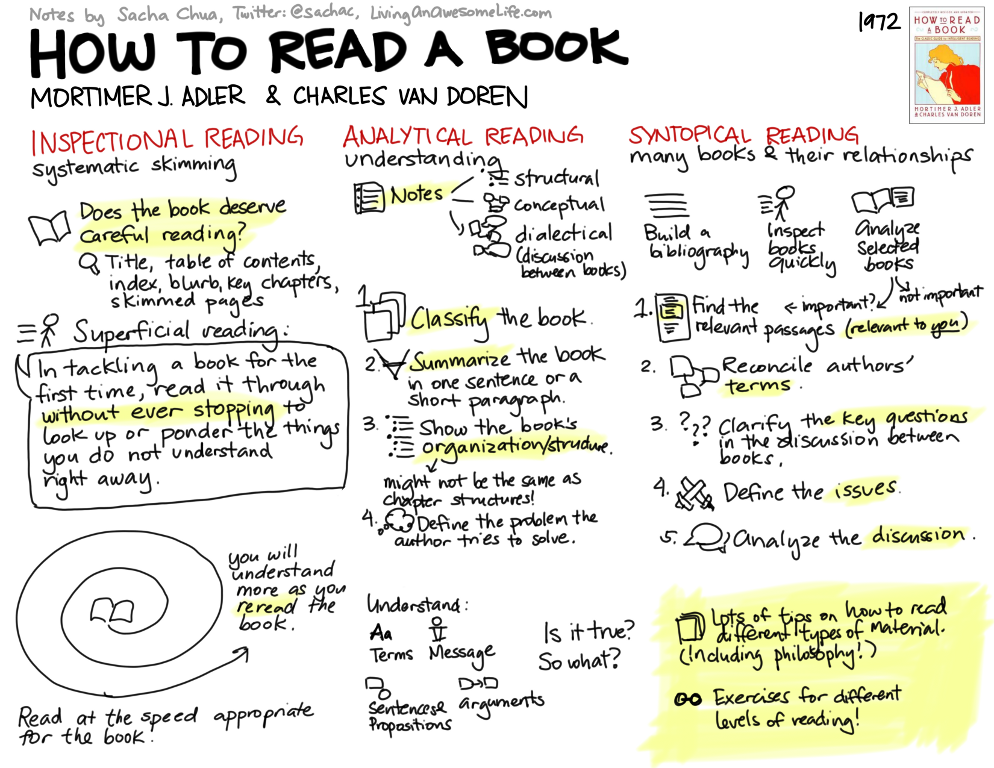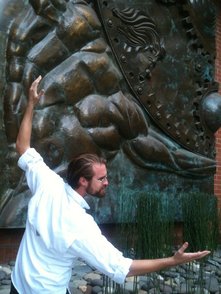Today I learned about Greek regular verb conjugations. It was extremely fun because before we got to the verbs we tried to make a prayer in Greek, in which I discovered this important facts:
οι sounds like i
η sounds like i
ει sounds like i
υ sounds like i
*** The predominance of the "i" is called "iotaísmo", and the "i" I meant pronounced as the latin "i". In English pronunciation that would be "ee"
αι sounds like e
ου sounds like u
To conjugate regular verbs these are the suffixes:
SINGULAR PLURAL
1st person ω "o" ομεν "omen"
2nd person εις "is" ετε "ete"
3rd person ες "es" ουσι "usi"
The verbs like "λεγο" which is talk, "ακου" which is listen or εχω which is have; these are all regular verbs.
Most of us like to be in control of things. I agree it's easy to see a world where everything and every action is "predicted". Guess what? That's not the way things REALLY are.
That feeling that we must be in control of things is just a fake way a seeing life. Actually, life is full of surprises and here I'm just talking of our own life. Imagine control someone else's! That's practically impossible. That's why we have to connect with that reality. In order to be genuine in this network of human beings, we must "relate", as the book Getting Real says.
Today was an amazing experience. With the MPC'ers we settled to discuss Getting Real, but due the fact that we were not so even in terms of lecture; we got to practice one of the proposals in the book: with a partner, say face to face things that are facts and things that you infer from those facts.
The one to one dynamic went pretty well, I got to speak to Catarina. We got to say shy commentaries, but then we got the whole group together. We got to speak about our truths generally. The thing actually started pretty boring, with superficial and empty commentaries. Eventually it got more intense and we spoke so many truths of each other. Somehow the environment turned to be pretty peaceful even though the commentaries got harsh.
I received two commentaries: I do not dress so much like a girl and I do not take care of my hair properly. I don't care what people think.
As a matter of fact, both are true. I don't give a damn! But that's a kind of problem. I need to work on my personal appearance and also consider more outside comments. I love feedback. Maybe that's a plus for me and the experience with this Getting Real book.
It's amazing how, as our communities grew, we got to experience changes in so many cultural matters. The language of number is something that evolved through humans finding patterns and relations between an amount of things and a concept.
When people started to exchange goods, while whole civilizations spread, the need of documenting of keeping account. When humans started observing changes in nature and patterns, they wanted to keep that in track. Or was it a tickle that made them want to leave a track? Leave a legacy?
And the complexity in numbers is something that's still being modified. Babylonians were really making so much noise out of it! Using six instead of one! Such an interesting approach, and still it was accepted by culture. And still we see traces of those when we count time. We have history all around us, reinterpreted and renewed. It is amazing.
How can we create a language understandable for a machine to actually manage to move groups of stones in cycles being these the cycles:
1: Stones move from pocket A to pocket B
2: When pocket A is empty, rotate the groups.
The thing was crazy, we created an algorithm, basically from scratch. First we drew each step using a diagram with each bag then we made functions.
Each bag had a name : Bag 1 = 0 with 0 stones
Bag 2 = 1 with 6 stones
Bag 3 = 2 with 5 stones
Bag 4 = 3 with 5 stones
Stones = {0, 6, 5, 5}
s = [0] = s = [1] with this step, I turned the bag 0 into bag 1
s = [1] = 0 with this step, I put 0 stones in bag 1
s = {6, 0, 5, 5} therefore, I've rotated one group of stones.
The sequence continues.. like this:
s = {6, 0, 5, 5}
s = [1] = s = [2]
s = [2] = 0
s = {6, 5, 0, 5}
Why do we read? In order to know or to understand?
The first chapters of the book "How to Read a Book" (such a funny name for a book right?) tries to introduce me to the difference of knowledge and understanding.
Knowledge is something that can be acquired and repeated, is like answering that 2+2=4 by memory. Understanding is something different, it is actually an observation. Answering to the question WHY? and learning from it. That happens in the mind only. The individual mind. Books are tools that can help us to acquire understanding, but getting to that level when reading is something that everyone can do.
There are four different levels of reading. One cannot exist without the other, and the point of acquiring the fourth level of learning is because one starts to make connections between readings and besides, start creating new things out of those infinite combinations that can be made.
Andrew Humphries, a graduate from St. John's College Skyped with us today and talked about his experience studying Euclid. He mentions how Euclid looks at the foundations, and how, in order to study Elements, one most forget about everything we already think we know.
It's funny, because in school we're taught to see geometry immediately related with numbers. But Euclid doesn't use numbers in his propositions! Besides, he writes almost everything. What a different approach.
Funny thing is that previously, we read a John Stuart Mill's quote which referred to how questioning every propositions is actually a step if we want to acquire understanding. Euclid is proposing his views, and the process to prove those is very clear. "His logic is really sharp" mentioned Humphries. Even though, I wish Euclid will get to answer all of our questions.
We had a Skype session with Andrew Humphries today.
He is a great learner, and he studied in St. John's College. There, he learned Euclid.
In order to understand Euclid, we have to look at the foundations was one of the things he shared with us. Also, reading Euclid will be a great challenge because he is actually talking us in a language, and that language is one with definitions and rules one must follow in order to understand. Also, the logic behind Euclid's work is amazing. It is a cool experience, and I could here out from Andrew's words that it will be fun!
Yesterday we discussed the essays "Corn Pone Opinions" by Twain and "What is enlightenment?" by Immanuel Kant, whether they agreed or not. We made two circles: an outer circle and an inner circle. The inner circle dialogued about the comparison, while the outer circle observed the dynamics of the dialogue. The circles alternated, so we'd have the observer and the actor experience.
It's amazing how by just listening you can arrive to different and new conclusions. That was my experience on the outer circle. On the other hand, the inner circle was like a river where things floated so smoothly. By this I don't mean that we actually agreed in everything, but that we got to make the conversation flow in a harmonic way. I got to actually absorb every comment in the dialogue, and that was absolutely enjoyable.
I got new things to ellaborate for the dialogue whether the two authors agree:
- Is the black philosopher agreeing with Kant?
- Is Twain "unsubmitted" to Corn Pone Opinions because he's listening to the black philosopher, something that was really risky?
- Does Kant consider culture and tradition?
New questions, new ideas.
Today I learnt so much about my fellow mates. You think, when you’re already for a long time (well, I know 2 weeks and a half isn’t much), but you already feel kind of comfortable. Besides, I already knew some of these people, but actually letting people talk about their life is something surprising. I got to know interesting facts about them, such as Alaska trips, Acting lessons, Philosophy and fears. People are hilarious. I talked with Carmen and Grace about our fears in the past and how our siblings are actually kind of annoying when we’re kids. (Sometimes when you’re old but not as often, I guess.)
But besides knowing about the ideas that actually shape these people, when I got to trace back the facts of my life (a thing I don’t like doing much), I actually discovered that there’s a huge gap in my life, in which I just considered I was surviving. My only escape was art and music; the trips I took. Those are the highlights of my overprotected life. But when I got to actually wake my life and let it rise even if the price was some kind of rejection I see how everything turned to be more fulfilling. Holding the wheel was a delight, a breath and that is something I’ll never regret.
So, Daniel Herbruger visited us and he talked about how his life turned to be from a “dependent learning” to an “independent learning” experience. He told us he was a drop out, and how books he read and how people he met changed his life. He biked all across the US! I mean, how many people have that kind of dream and really get to accomplish it?
After that, Kyle came in and we started math. Reading! It was two essays, one of Robert Graves and the other by Samuel Beckett. They both elaborated in how people solve problems, one by pure observation (trial and error) and the other was about this kid-genius or whatever who solved the problem instantly and the teacher was pissed and just couldn’t accept the fact that the kid was a genius. That happens so much! When will teachers acknowledge that kids can be wiser than them? Is it the strong fact that maybe they didn’t spend their life productively and didn’t learn as quickly as the student? That will change. It has to!
|



 RSS Feed
RSS Feed